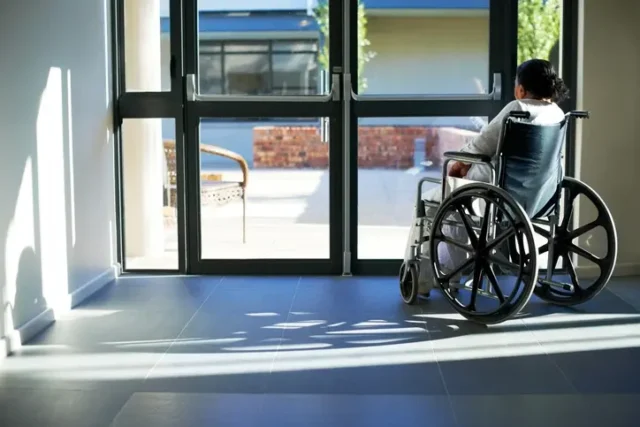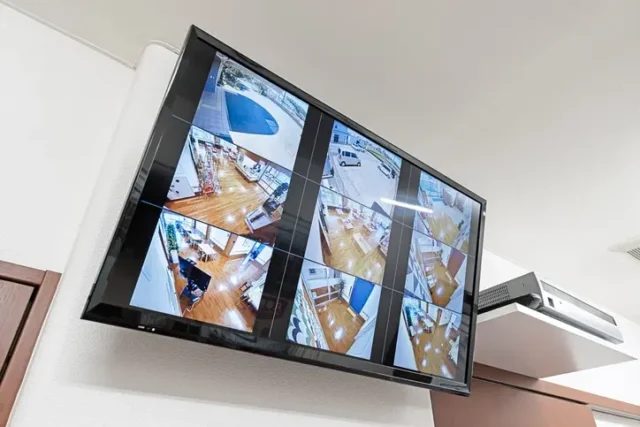If you suspect that your loved one’s in danger, you must know how to prove nursing home negligence in court. You need evidence that clearly proves the nursing home violated their duty of care in protecting your loved one. This then proves their actions were the root cause of your loved one’s damages.
In July 2022, approximately 1.2 million people reside in more than 15,000 certified nursing homes. While most of these nursing homes offer safe care for residents, cases of nursing home negligence continue to rise.
Placing a loved one in a nursing home can be one of the most significant decisions a person can ever make. Their safety and happiness is your primary goal, but abusive caretakers may hurt your loved one while you’re away. If your loved one is part of these statistics, you need a nursing home abuse attorney to represent you.
Free Nursing Home Neglect Evaluation
Were you or your loved ones victims of abuse? Click here to speak with a nearby attorney for FREE about your Nursing Home Neglect claim.
or call (888)-927-3080
What Is Nursing Home Negligence?

Nursing home negligence occurs when a care facility fails to offer basic care to its residents. Nursing homes may ignore core state and federal rights, leading to physical and psychological harm for their residents.
Common types of negligence include:
- Not providing basic necessities like food, water, and adequate shelter
- Failure to promote basic hygiene for each resident (bedding, bathing, toileting)
- Improperly dosing medication to sick residents
- Not turning bed-ridden residents, leading to malnourishment or bed sores
- Preventing residents from socializing with visitors or other residents, leading to social neglect
Gather evidence like witness testimonies or photographs to properly prove nursing home negligence in court. The more evidence you can gather about the situation, the better. Your attorney and organizations like your state’s ombudsman can help with the investigation process.
How Common is Nursing Home Neglect or Abuse?
The numbers are grim: according to the World Health Organization (WHO), approximately 1 in 6 people 60 years and older experienced abuse in community settings. Moreover, two of every three nursing home staff members reported committing abuse in the past year. Sadly, these rates increased during COVID-19.
The main types of nursing home abuse according to the WHO are:
- Physical abuse – 29%
- Resident-to-resident abuse – 22%
- Gross neglect – 14%
- Financial abuse – 7%
- Sexual abuse – 7%
Other sources estimate that 1 in 10 of those over the age of 65 experience some form of abuse–and those rates are often higher in care facilities. This is true even though there are government regulations designed to keep nursing home residents safe.
Which States Allow Surveillance Cameras in Nursing Home Residents’ Rooms?

As of 2020, these states allow surveillance cameras in resident rooms at nursing homes, if the resident consents:
- Illinois
- Kansas
- Louisiana
- Minnesota
- Missouri
- New Mexico
- Oklahoma
- Texas
- Washington
Other states continue to weigh the benefits of surveillance cameras in residents’ rooms with the residents’, visitors’, and employees’ right to privacy. Surveillance cameras are not a substitute for involvement in a nursing home resident’s life. They may suffer abuse outside the purview of a surveillance camera.
How to Prove Nursing Home Negligence Without any Recordings
The question, then, is how to prove nursing home negligence when there is no video proof.
One way is to visit often, both at expected and unexpected times. Document those visits–take notes and photos, and date everything. Watch for patterns and subtle changes in your loved one’s behavior. While they might be afraid to say something directly to avoid retaliation, they might give clues that you can investigate.
Because nursing homes are required to follow state and federal laws, you can observe the staff and talk with administrators. Ask questions about how staff are trained and evaluated.
You’re within your rights to ask about hiring practices and background checks. Requesting copies of staff schedules can also be revealing; often nursing homes are understaffed, causing untrained and overworked caretakers.
You can also rely on outside medical professionals to help prove your case. Keeping detailed medical records while under care can help show a loved one’s status while at a nursing home.
Witness testimonies are key to proving nursing home negligence in court. A witness can offer a new perspective on your loved one’s situation. They may also prove that similar nursing home negligence occurred to other residents.
How State and Federal Laws Protect Nursing Home Residents
Nursing homes are strictly prohibited from:
- Discriminating against residents
- Charging unexpected fees
- Managing residents’ money without their consent
- Abusing or neglecting residents
- Forcing medical treatment
- Denying visitors
- Retaliating against residents
- Understaffing their facilities
Federal laws like the Nursing Home Reform Act protect nursing home residents by withholding Medicare funding to negligent nursing homes. Certain state laws also exist to protect those living in a nursing home.
How Much is a Nursing Home Negligence Case Worth?
A nursing home negligence case’s worth will vary widely depending on circumstance. The severity of the neglect, economic damages, and the case’s evidence all factor into how much a settlement might be.
And because every case is different, it’s almost impossible to compare one case of neglect to another. You need a legal specialist like a nursing home abuse attorney to analyze the specifics of your case.
An Attorney Can Best Explain How to Prove Nursing Home Negligence in Your Case
When a family is forced to navigate an issue of nursing home neglect or abuse, it can be difficult to remove emotion from the facts: after all, the person being neglected or abused is someone you love.
Multiple states have a 1-2 year statute of limitations for bringing nursing home neglect cases to court. If you don’t file your claim before this deadline, your case may get barred from court. A free consultation with a nursing home attorney may make or break your case, so there’s no time to delay.
Lisa Allen
Lisa Allen is a writer and editor who lives in suburban Kansas City. She holds MFAs in Creative Nonfiction and Poetry, both from the Solstice Low-Residency Program in Creative Writing at Pine Manor College. Prior to becoming a writer, Lisa worked as a paralegal, where she specialized in real estate in and around Chicago.


